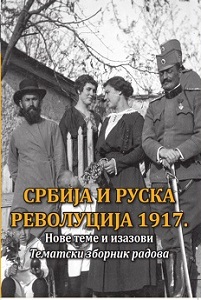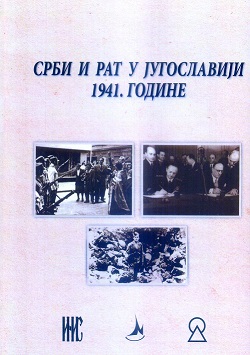Author(s): Dragan Bogetić / Language(s): Serbian
Publication Year: 0
During the period the distinguished American diplomat and doctrinaire George Kennan spent in Yugoslavia, the Yugoslav-American relations have reached their nadir since Tito’s clash with Stalin in 1948. Aware of incapability to reverse this trend, soon after his accreditation in Belgrade, Kennan asked of his government to be recalled from Yugoslavia so he could continue his career of a scholar and professor. Since his diplomatic mission to Moscow in 1952 had a similar ending as he had been declared persona non grata after an inadvertent statement, it seemed that there was a large discrepancy between Kerman’s political capability to observe the rules set by the logic of diplomatic service and his extremely high doctrinaire achievement that was inbuilt into the platform on which the relations within the Cold-War tinged international community were based throughout four decades. However, it is dubitable if any person who would have taken over the duty of the ambassador to Yugoslavia could have prevented the obvious cooling of the Yugoslav-American relations. It is impossible to answer this question without a comprehensive reconstruction of the events that decisively influenced the international relations, but also of the events that decisively determined the international position of Yugoslavia and her foreign political priorities. It is obvious that Kennan came to Belgrade when a turn for the worse could have been detected in the Yugoslav-American relations. It was the time when the powers that be in Belgrade and in Washington saw in the international strategy that would, in near future, lead to a degree of mutual confrontation, the means of overcoming the negative results of foreign political actions of the previous period. Namely, at the time Kennan was taking over the duty of US ambassador and explaining the tenets of the future American policy in the developing countries, Tito was finishing the last preparations to unite these countries into a single front aimed directly against the attempts of the former colonial powers and the USA to establish their dominant influence in Africa, Asia and Latin America. Obsessed with fear of uncontrolled spreading of the „virus of Marxism- Leninism“ in poor countries, American officials saw everywhere in the Third World the dominoes set and ready to fall upon slightest disturbance. In the wake of such thinking, the conclusion imposed itself that if the malady isn’t nipped in the bud, it could spread from Cuba - only 90 miles off the US coast - to other Latin American nations. On the other hand, almost simultaneously, in the Yugoslav political circles the doctrine was taking shape of necessity to form a movement of non-aligned countries that would secure for Yugoslavia a role of an important factor in the international relations and that would boost its prestige in the world. Trying to become the leader of the poor and disenfranchised peoples of the world, during their meeting in Belgrade in September 1961, Tito adopted the stance of the most severe critic of the rich Western states in which he saw the main culprits for the existence of the deep gap between the developed and the undeveloped parts of the world. Tito’s unrestrained and unbalanced anti-American attitude didn’t contribute to the realization of his idea of the need to fonn a non-aligned movement, but it did cause a hale of dissatisfaction in the Western public and made relevant the cessation of further American economic and financial aid to Yugoslavia. It is less than likely that any ambassador, no matter how able and enterprising, could have stop an anti-Yugoslav campaign in the American Congress after the calumnies Tito aimed against the USA during the Belgrade summit. The corollary was passing of restrictive Congress amendments concerning economic aid to Yugoslavia and decrease of the interest of the American administration in cooperation with Yugoslav officials. Under such circumstances Kennan had less elbow-room to organize the previously proposed Tito’s visit to the USA, on which the Yugoslav side doggedly insisted. Kennan’s real contribution to the normalization of the Yugoslav-American relations could be seen only after his recall from Yugoslavia. During the time that lapsed between his demand to the State Department to be recalled from Belgrade and the time it was conceded, Kennan contributed significantly to the toning down of the animosity between Belgrade and Washington. His benevolent explanations concerning the ways out of the crisis that paralyzed the bilateral relations, influenced the positive change in the foreign political approach of the Yugoslav officials. Kennan’s presentations in Washington, as well as his exhaustive telegrams, had an extremely positive effect. At the time he returned to his academic profession at the Princeton University, he could be satisfied. It was the time when Tito finally visited Washington and restrictive Congress amendments concerning Yugoslavia had been repealed. The age of close Yugoslav-American cooperation set in again.
More...






